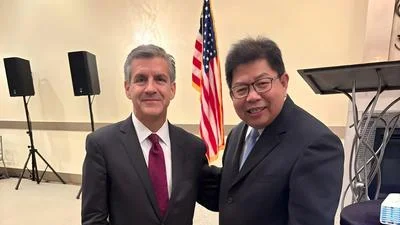In many areas across Illinois, endorsements by local caucuses are highly influential, perhaps even determinative in certain election outcomes. Caucuses enjoy an aura of neutrality and objectivity, and their slated candidates gain an apolitical halo that is difficult or impossible for challengers to overcome, especially in school board elections.
In truth, however, it’s all rigged. Local caucuses are self-appointed, self-perpetuating, political, entirely unregulated and hopelessly biased.
In some areas, particularly Chicago’s north suburbs, their stature accrued decades ago. A New England town hall concept is behind their origin and they indeed once served that venerable form of democracy, which is nicely described in the column here from 50 years ago.
But that political neutrality and objectivity withered as America became more divided. It ended entirely in recent years as schools became politicized and board meetings became combative.
One side, however, mastered the caucus process in a classic example of political capture. That’s the education establishment and political left. Today, with no exceptions I could find, Illinois caucuses are autocratically controlled to favor school administrators, teachers unions and the status quo. The only real function caucuses thereby serve, for you as voters, is to provide a seal of approval by that establishment left.
If you want reformers, however, you’d better do your own research on individual candidates. Specifically, if you favor things like school choice, reduced political indoctrination in schools, tougher checks on spending and less power for teachers unions, forget caucus slates.
There’s nothing illegal about what the caucuses do, and, in one sense, nothing unfair. Caucuses are not regulated in any manner and no filing is required with the Illinois Board of Elections or anywhere else. They can do entirely as they please, except for a few that also operate as political action committees and are regulated as such. You could start your own caucus tomorrow, managed however you want. For that reason, give the establishment credit for exercising political and organizational skill while reformers slept.
They are also “nonpartisan” in the sense that they avoid any label as Democratic or Republican. I was unable to find any Illinois caucus, however, that appears to be controlled by Republicans or school reform advocates.
But they are hardly apolitical, and they are misleading in letting you think otherwise. Look at any of their websites or materials, when they have any, and you will get the sense that they are much like those old New England town halls. However, It’s not that way. Challengers holding political views conflicting with the establishment can’t just walk in and expect a reasonable level of representation and participation.
That’s because controlling power is typically self-selecting and self-perpetuating, or otherwise overly difficult to change.
The Winnetka Caucus, for example, is essentially run by something called the Winnetka Caucus Council. It’s bylaws lay out some basic, reasonable requirements for membership. But who actually decides on new Council members? The current Council members.
Some others appear to be more democratic, at least on the surface. For example, the Glencoe Caucus says its members are elected by vote of everybody in the village, and those members then elect various committees and leadership. Changing that from the bottom up, however, surely would be daunting to a challenger with differing viewpoints than caucus leadership.
Caucus jurisdictions may confusingly overlap. For example, there’s the Winnetka Caucus and a New Trier School Board Caucus. There’s a Glencoe Caucus and a Glencoe D34 Education Caucus.
The problems with caucuses discussed herein are not limited to school boards. Many also slate candidates for township and local offices of all kinds.
An illustration of apparent caucus confidence in its own power recently came out of Winnetka School District 36’s Board this year. The local League of Women Voters was unable to hold a forum with all candidates because the Winnetka Caucus declined on behalf of the Caucus to have its slated candidates participate.
That caucus’s refusal to participate was criticized by New Trier Neighbors, a conservative watchdog. “It is unusual for any candidate to refuse to participate in a debate or candidate forum prior to a contested election for public office, especially an office that oversees an annual budget of more than $45 million,” they wrote. They went on:
This is anti-democratic. In today’s environment, we need more transparency from schools and school board members – not less. And we need to inform and involve as many voters as possible. Regardless of how capable and qualified the Caucus candidates may be, by withdrawing from the LWV candidate forum, the Caucus Council is stifling a healthy, lively, and open debate about who should oversee local schools and thus have done a disservice to Winnetka voters and Winnetka’s children.
Perhaps there’s somewhere in Illinois where reformers or those right of center have learned to play the caucus system well enough to get an endorsement despite their political views, but I haven’t found one.
The lesson from all this is that you should not assume that caucus endorsements are what they seem. They are instruments of political power used by the establishment left to maintain its power.
UPDATE 2/26/23: The Chicago Tribune today has an editorial about how the caucus system in Lake Forest apparently worked in an undemocratic way against a female mayoral candidate, Prue Beidler.





 Alerts Sign-up
Alerts Sign-up